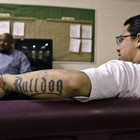
Children’s Right to Attorney Not Universal, Washington State High Court Rules
|
A Washington state Supreme Court ruling Thursday upheld a state law allowing trial judges to appoint attorneys to foster children in cases where a court is considering removal from their family. However, the law does not require children to have an attorney, and the justices ruled 9-0 that the right to an attorney is not universal, according to The Seattle Times. While children have a right to due process, trial judges “have the discretion to decide whether to appoint counsel to children who are subject of dependency or termination proceedings,” the justices wrote in their ruling. "It is the child, not the parent,” the ruling continued, “who may face the daunting challenge of having his or her person put in the custody of the State as a foster child, powerless and voiceless, to be forced to move from one foster home to another.”
Children’s rights advocates were disappointed in the ruling, The Times reports, arguing the ruling departs from other decisions that have upheld children’s universal right to counsel. Still, the ruling notes children would be denied attorneys only in rare cases.








